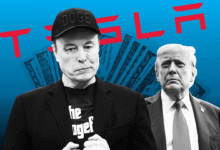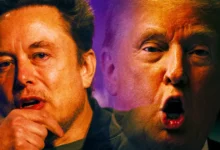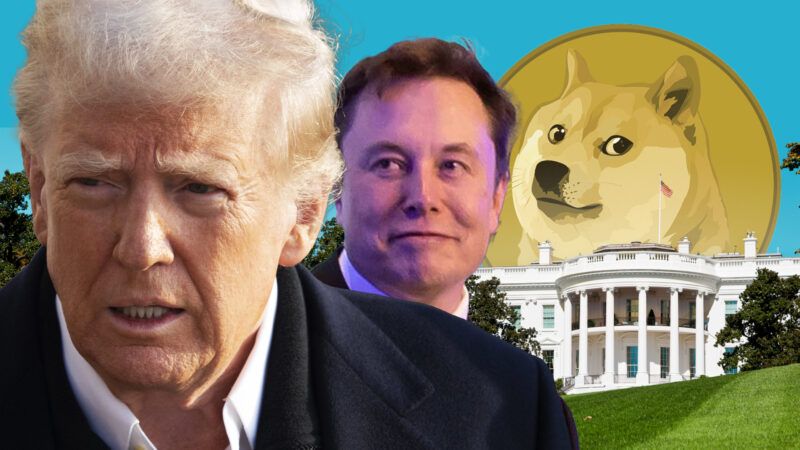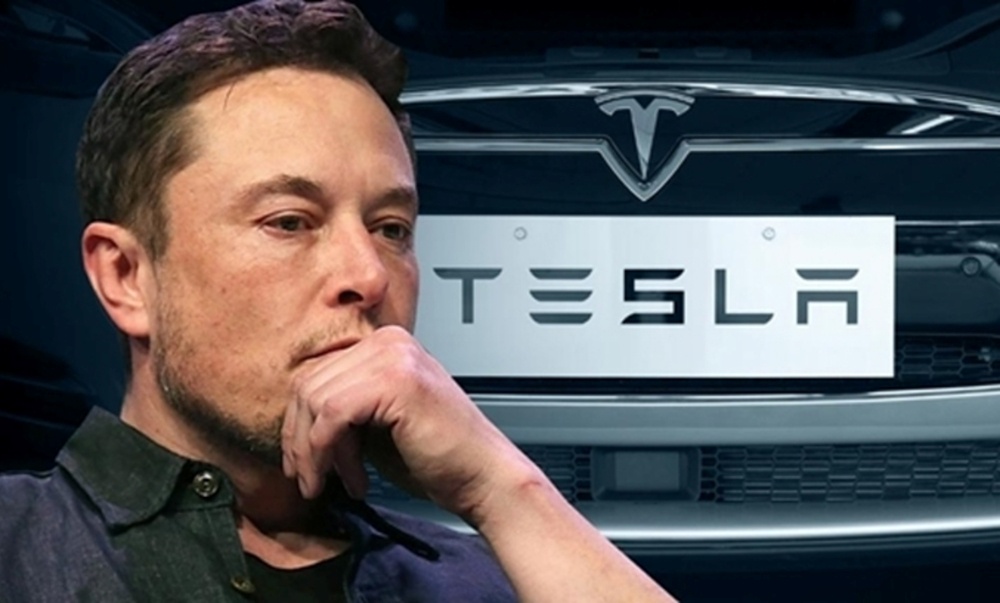Tesla Faces Losing Billions After Trump-Musk Fallout
Markets tremble as tensions escalate between Trump and Elon Musk, with analysts warning of catastrophic consequences for Tesla’s future.
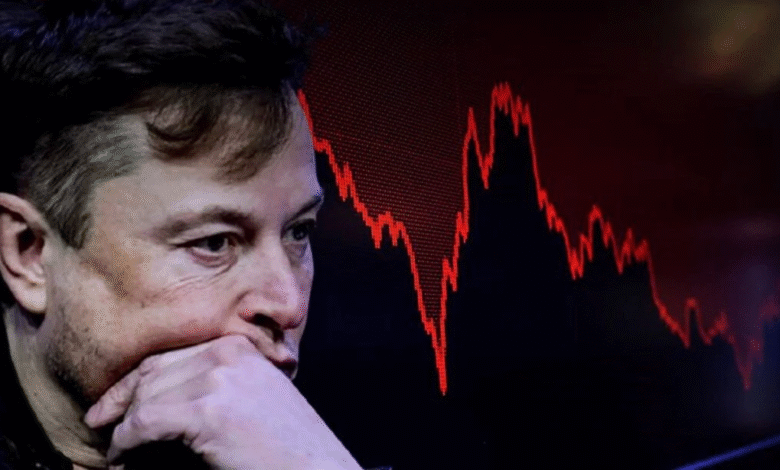
Elon Musk’s Tesla risks losing billions of dollars in government subsidies following its deep disagreement with Donald Trump, after the president cut public support for green industries.
Public support has played a crucial role in Tesla’s rise from startup to the world’s largest electric vehicle manufacturer in less than 20 years. However, an analysis by Sky News’ data and investigations team reveals that the president’s cuts could leave a significant hole in its future profits, raising questions about its business model and stock market value.
Government subsidy revenue accounted for at least 38% of Tesla’s $7.1 billion profit in 2024, including $2.8 billion from trading “regulatory credits,” government subsidies paid to encourage the production of electric vehicles.
Furthermore, the first-quarter financial statements show that Tesla generated $595 million in regulatory credits, nearly 50% more than its net profit of $409 million, suggesting that without this support, Tesla would have recorded a loss.
Tesla’s total revenue in 2024 was $98 billion, of which $72 billion came from vehicle sales.
Tesla also benefited from a $7,500 federal tax credit available to consumers who purchase an electric vehicle. If this credit had been applied to all of the more than 630,000 Tesla vehicles sold in the United States last year, the value of the rebate would have reached $4.7 billion.
The federal tax credit was eliminated by Trump’s tax and spending bill, while California’s authorization to grant credits for its zero-emission vehicle programs was revoked last month, threatening state programs across the country.
Amid a public feud between Mr. Trump and his campaign funder, the president renewed his efforts to reduce subsidies for green industries.
In a post on Truth Social, Mr. Trump said, “Elon Musk has probably received more subsidies than any human being in history, and without them, he would probably close his factory and move back to South Africa.”
Speaking to reporters on the White House lawn, where he had previously posed for a photo with Mr. Musk alongside a few Tesla models, the president added, “Elon Musk hates the repeal of the electric vehicle mandate.”
“Elon’s playing a very dangerous game”
Tesla’s global sales have also declined due to increased competition and consumer concerns about Mr. Musk’s past support for the president.
Gordon Johnson, a financial analyst and notorious Tesla skeptic, told Sky News: “Trump’s proposed changes have a significant negative impact on Tesla’s fundamentals.
If all these government programs are eliminated, Tesla will lose money, liquidity, and the stock will plummet.”
Ross Gerber was one of Tesla’s earliest investors after experiencing what he called an “incredible moment of enlightenment” upon first seeing a Tesla Model S. He said: “I thought, ‘Oh my God, this could change the way we get around.'”
Green Incentives Drove Tesla’s Growth
He is currently selling his Tesla shares and is considering selling his Tesla Cybertruck due to the hostility it has generated. He added: “Elon is playing a very dangerous game.” »
Tesla has long benefited from subsidies in the United States and from governments around the world to stimulate the adoption of electric vehicles and low-carbon technologies.
In the United States, regulatory credits are an incentive designed to encourage automakers to meet their electric vehicle production targets. Several states, led by California, use these regulations to enforce the requirement that manufacturers produce a certain percentage of electric vehicles as part of their total production.
Because Tesla manufactures exclusively electric vehicles, it receives free credits and profits from the sale of these vehicles to gasoline and diesel vehicle manufacturers, who need them to make up any shortfall in meeting state targets.

A dozen U.S. states, as well as several European governments, including the United Kingdom, are implementing similar programs.
In June, the president signed executive orders revoking California’s authority to set mandatory targets, a move that jeopardizes similar programs in other states.
“The $7,500 subsidy for the purchase of an electric car doesn’t benefit Tesla,” Johnson said. “But its elimination means the value of Tesla cars will immediately increase by $7,500, which will have a significant impact on demand.”
“The electric vehicle subsidy is critical,” Gerber said.
Tesla also has a thriving energy business, selling home and commercial solar power, and could be affected by the elimination of a tax credit that can cover up to 60% of the system’s cost. Tesla’s energy division generated $10 billion in revenue last year.
Cuts And Competition Challenge Tesla’s ‘Technoking’
The withdrawal of this support is one of the many challenges Tesla and its chief technology officer, Elon Musk, face as they dominate a market they helped create.
It has been only 18 years since the first Tesla Roadster rolled off the production line, drawing praise from early adopters and skepticism from established American automakers.
Musk’s efforts to market battery electric vehicles not only as excellent vehicles, but also as attractive and reliable ones, are largely due to his personal popularity and social media presence.

His efforts helped the company overcome the enormous technical challenges of building a major automaker from scratch, and he quickly capitalized on the benefits of relocating production to China, where the entire auto industry was undergoing electrification.
Mr. Gerber recalls, “When I started at Tesla, electric cars didn’t exist yet, and Elon Musk was building them. Now, 10 years later, electric cars are everywhere. They’re the fastest-growing segment of the automotive market.”
Tesla’s growth has been fueled by subsidies and tax breaks provided by governments around the world to consumers and businesses to accelerate the transition to low-carbon transportation.
By the early 2020s, the company had established itself as the world’s leading electric vehicle manufacturer, accounting for three-quarters of sales in the United States.
It has also established itself as one of the world’s most valuable technology stocks, its volatility likely driven as much by CEO tweets as by production updates.
In December 2024, Tesla’s market capitalization peaked at over $1.5 trillion, making it one of the world’s most valuable companies. However, its justified success has prompted competitors to begin chipping away at its market share.
While established European and American automakers have flooded Tesla’s luxury electric vehicle market with competition, much cheaper Chinese electric vehicles have eclipsed them all in recent years.
Last year, Chinese automaker BYD surpassed Tesla’s global market share of all-electric vehicles, according to market research firm TrendForce.
China is also a vital market for Tesla, accounting for more than half of its vehicle sales outside the United States, but this share is currently declining.
Calls for a boycott of Mr. Musk, prompted by his past support for Trump, have also led to declining sales in other markets. In the first four months of 2025, sales fell 58% in Germany, 44% in France, and 62% in Australia.
Investors Divided Over Musk
Increased competition, a withdrawal of support, and hostility from the president and potential customers have led some investors to abandon Tesla.
Despite being an early supporter of Tesla, Mr. Gerber, president of Gerber Kawasaki Wealth and Investment Management, has reduced his company’s investments in recent months.

He said: “We’ve had to sell more Tesla stock, and we’ll continue to sell more. The stock is significantly overvalued and still has many problems, not least on the business side.”
“It’s the biggest disruptive technology company in the world, along with Nvidia.”
Tesla’s value fell sharply in the first few months of 2025, after Elon Musk joined the Trump administration. By mid-March, its stock price had almost halved.
While the stock has risen slightly since Musk announced his departure from the government, its price is only two-thirds of its December peak.
Other investors are more optimistic, arguing that Tesla’s value should not be measured solely by sales and productivity, but also by Musk’s innovation, particularly in artificial intelligence and autonomous driving, which he sees as the next frontier in the automotive industry.
Tesla tested its self-driving robotaxi in Austin, Texas, with mixed results in June. Several accidents prompted the National Highway Traffic Safety Administration (NHTSA) to open an investigation, but many investors were undeterred.

Dan Ives, a senior analyst at Wedbush Securities, a major wealth manager, has long supported the company, and his view hasn’t changed in the face of recent events.
“The Trump controversy doesn’t deter us from this,” Ives wrote in a recent report co-authored with Wedbush analyst Sam Brandis. “We believe Tesla remains the most underrated AI company in the market today.”
In an interview with Sky News, Ives acknowledged that federal and state tax breaks are “the roots of Tesla,” without which the company wouldn’t be where it is today. However, he asserted that the core of its success lies in “innovation in everything it’s built.”
“It’s the biggest disruptive technology company in the world, after Nvidia,” he said.
Mr. Gerber remains skeptical, fearing that Mr. Musk’s political shift has irreparably damaged the brand he built.
Although he was able to sell his shares, he struggled to find a buyer for the Cybertruck he bought last year.
Mr. Gerber said, “I like it a lot. However, I don’t like the feeling of driving it. People hate Tesla so much.”


